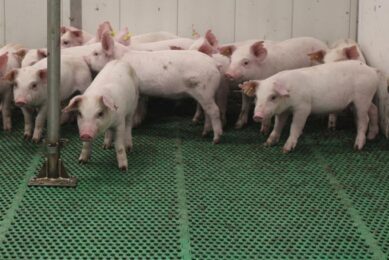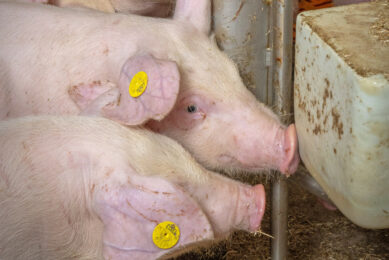ISU study follows path of salmonella contamination in pigs
Iowa State’s College of Veterinary Medicine and Michigan State University jointly did a study on the link between lesions in pig carcasses and contamination of the same carcasses with salmonella.
“We were trying to see if there was any link between animal health and human health,” Dr H. Scott Hurd, associate professor and director of graduate education at the College of Veterinary Medicine told the Iowa State Daily.
Hurd has been working with the bacteria for the past 20 years. He is a known advocate of the usage of antibiotics in swine production. Reduction of antibiotics usage may have a detrimental effect on pig health, Hurd said.
“Our theory is that as animal health concerns get smaller, there will be more pigs that won’t visibly look ill but will have these lesions, which will lead to more inspection. This will lead to more contamination and will make more people sick.”
Study
The study used 358 pig carcasses. More than 150 of the pigs were raised without antibiotics and 202 pigs were raised conventionally and with antibiotics. The pigs were otherwise raised the same, with the same veterinary care, housing environment and feed.
The results of the study found that carcasses with lesions were 90% more likely to have salmonella contamination. Out of the 156 pigs being raised without antibiotics, 27 of them were contaminated with salmonella, while out of the 202 pigs raised with antibiotics, only nine were contaminated with salmonella.
This, Hurd explained, is because a pig that visibly looks well, but has adhesions inside the carcass, are going to be handled more.
He told the newspaper, “Part of our theory was that when a person is cutting open pig carcasses that are visibly healthy, they might find an adhesion, which they jerk out and move on to the next one. This contaminates their hands, though, and they don’t stop to wash them, so they end up contaminating other pigs as well.”
Related websites:
• Iowa State Daily
• Iowa State University











